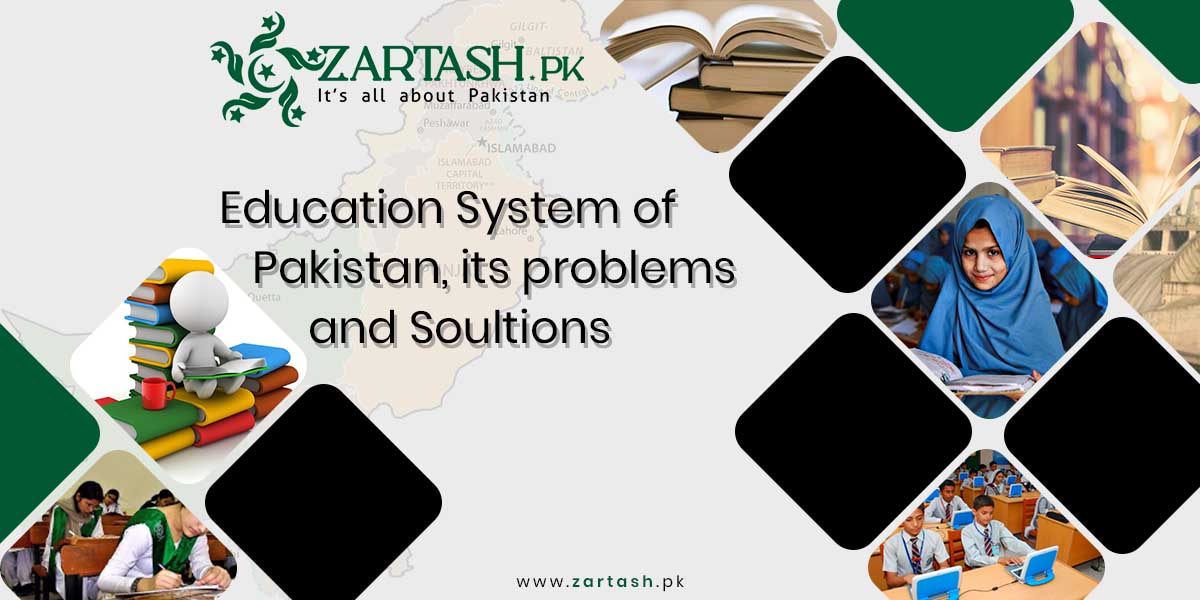
System of Education and its Types
A system is defined as a set of elements that are arranged in such a way that they interact with each other and regulate a mechanism while education means the socialization of people by the transmission of knowledge.
So,
An eduacation system is an edifice that is built with the compoents that play a key role in educating people. The schools, colleges, universities, teachers and also libraries are part of this system.
Types of education
There are three types of education which are as follows;
- Formal Education ( It is highly structured in levels and stages and is a chronologically graded system of education starting from school to university level)
- Informal education (It is life-long training process through daily experience from the environment)
- Nonformal education ( This education is gained through unplanned and unintentional activities when interacting with others. Curiosity is the major factor of this learning)
System of Education in Pakistan
In Pakistan, the education system is under the control of the Federal Ministry of Education and the provincial government. The federal government, on the other hand, plays a key role in curriculum development, the promotion of research and development, and also in accreditation.

According to Article 25-A of the Constitution of Pakistan, it is an obligation of the state to provide free education to children of age 5 to at least 16 years. The Article 25-A is stated as,
The State shall provide free and compulsory education to all the children of the age of five to sixteen years in such a manner as may be determined by law.
Facts and Figures about the Education System of Pakistan
The salient feature, facts, and figures about Pakistan are,
| Minister of Education | Shafqat Mahmood |
| Total Literacy in Pakistan | 59.13% |
| Female literacy | 46.67% |
| Male Literacy | 71.12% |
| Type of Education System | State, Private and Federal |
| Primary Languages of Education | Urdu and English |
| Total Enrollment | 32.33% of the total population |
| Main levels of Education | Primary, Secondary, Post Secondary |
Levels of Education System in Pakistan

There are generally six levels in the education system of Pakistan which are;
- Preschool (From the age of 3 to 5 years)
- Primary
- Middle
- Secondary Education
- Intermediate
- Higher Secondary Education
University Programs award students with graduation and master’s degrees. In 2002, Higher Education Commission was established under Atta-ur-Rahman, its founding Chairman. Now, every year Pakistan produces about 445.000 qualified graduates whereas about 30,000 CS graduates.
Stages of Formal Education in Pakistan
The stages of Formal Education in Pakistan are;
- Primary Education
- Secondary Education
- Tertiary Education
- Quaternary Education
Primary Education

Only about 87% of the whole population of Pakistani children acquire primary education. In primary education, the first level is preschool education.
Preschool education consists of 3 stages when the students are of age 3-5 years. These stages are,
- Play Group
- Nursery
- Kindergarten
Junior Schooling starts after pre-schooling which is from class 1 to class 5.
Middle School follows Junior School and is from grade 6 to grade 8. The curriculum varies according to field of study and institution but the most commonly taught subjects at this level are, Mathematics, English, Urdu, Arts, Science, Islamiyat, Social Studies, and also Computer. In language medium schools, regional languages are also taught such as Punjabi, Pushto, and Sidhi and sometimes Arabic is also taught.
Secondary Education
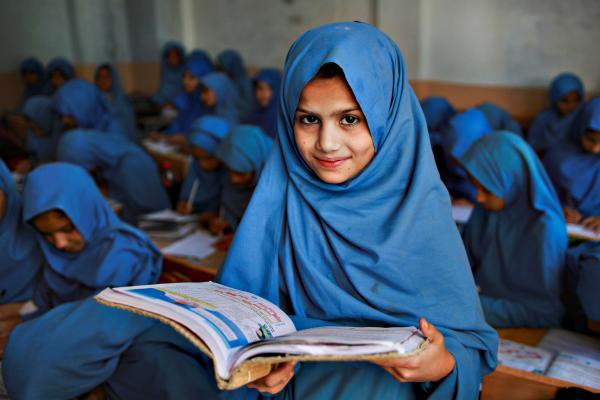
In Pakistan, mainly secondary education is from grade 9 to grade 12. It is a 4-year study and after each year, students have to give national exams that are administered by the Board of Intermediate and Secondary Education (BISE).
In secondary education, students pass through matriculation and intermediate examination. Each of these exams is for two years and is divided into two parts i.e. Matriculation ( 9th and 10th Exam) and then Intermediate exams ( 11th and 12th exams).
In the curriculum of Matriculation Exam, English, Mathematics, Urdu, Islamic Studies and Pakistan Studies are the compulsory subjects whereas Biology, Chemistry, Physics, and computer are elective and from which three should be chosen. After passing matriculation exams successfully, students are awarded an SSC or Secondary School Certificate.
After Matriculation, students get admission to intermediate colleges. The intermediate level is also called FSC, FA, ICS, and ICom. according to the stream of education chosen. FSC for pre-medical or pre-engineering, FA for arts subjects, ICS for Computer Science, and ICom for Commerce. Urdu, English, and Islamiyat in Part I whereas Pakistan Studies in Part II are compulsory subjects.
Technical or Vocational Education

This education usually starts from 5th grade to 10th grade. Facilities for this education are provided by the three boards of Technical education, i.e. Punjab Board, Sindh Board, and KPK Board. Punjab Board of Technical Education (PBTE) offers diplomas in different technologies, i.e. Mechanical, Civil, Electrical, Computer Sciences, Electronics, Architecture, chemicals, etc.
In this education, the first matric is done and then this three-year diploma is done that is equal to intermediate. In this diploma, more than 26 books are studied. Such diploma holders are called Associate Engineers. They are ready to join either, a B.Tech or Bachelor of Engineering.
Tertiary Education
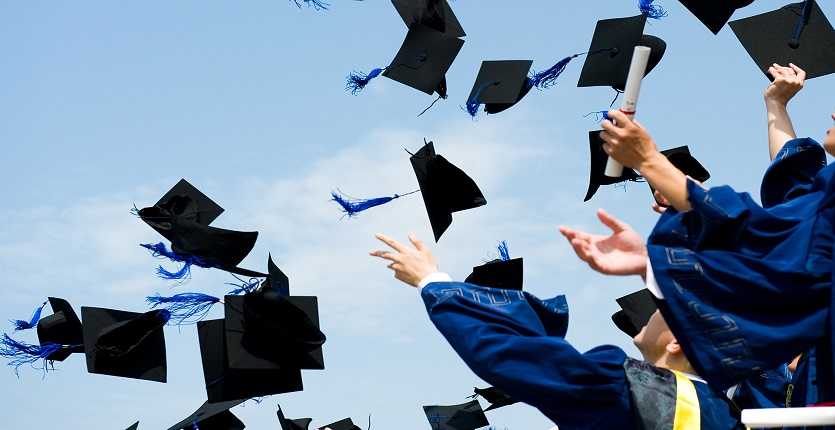
After winning Higher School Certificates, students can get admission in any university or college that offers Bachelor’s Programs Such as;
- Engineering (BS Engg/ B. Engg)
- Dentistry (BDS)
- Medical (MBBS)
- Veterinary medicine (DVM)
- Agriculture (B.Arch),
- Law (LLPB), B. Tech Hons/ BS Engg. Tech
- Pharmacy (Pharm-D)
- Physiotherapy (DPT) and
- Nursing (B. Nursing).]
All of these are four to five years programs. All these programs are under the administration of boards and councils such as PMDC, Pakistan Nursing Council, and Pakistan Pharmacy Council.
Other than that there are many other Bachelor programs that students can choose such as,
- Bachelor of Arts (BA)
- Bachelor of Science (BS)
- Bachelor of Business Administration (BBA)
- Bachelor of Commerce (BCom)
Types of Bachelor Courses
Normally, there are two types of Bachelor courses in Pakistan that are;
Honors Degree——It is about 3-4 years of study and students get specialized in their chosen subject of specialization such as if it is Biochemistry so BSc Hons. Biochemistry.
Pass Degree——-It is a two years study program in which students read three compulsory and three optional subjects. Now in Pakistan, this type of bachelor’s is phased out for Honors.
In 2007, according to calculations, only 6% of Pakistan’s population graduated from universities. The Education Ministry of Pakistan then planned to increase this percentage to reach about 10% by 2015 and by 2020, it should reach 15%.
Quaternary Education
It is the fourth level of the Education system in Pakistan. It is also called post-graduate level. It is a completion of an undergraduate degree achieved from a college or university.
Quaternary Education is actually a Master’s degree which is a 2-year program. After doing a master’s in their subjects, students can go for doing a Master of Philosophy (MPhil) which is available in many subjects in Pakistan. After that, students can go for a Doctor of Philosophy (Ph.D.) education that is done in specific universities in Pakistan in specific subjects.
Formal and Nonformal Education
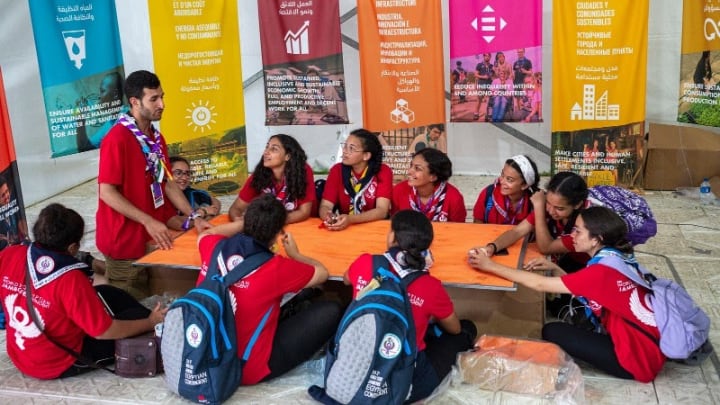
Besides formal education, there are many vocational-oriented training institutes and centers that are run by public sectors. These are vocational and agriculture training centers, technical training centers, and vocational schools. The state of Pakistan has also designed a system of apprenticeship ( a system that trains the practitioners of profession or trade with training on the job and also gives them basic education.)
To run the economic circle of Pakistan, informal education also has vast chief importance, and mostly low-skilled school leavers are gathered and trained them under the supervision of skilled and professional craftsmen.
Madrassas
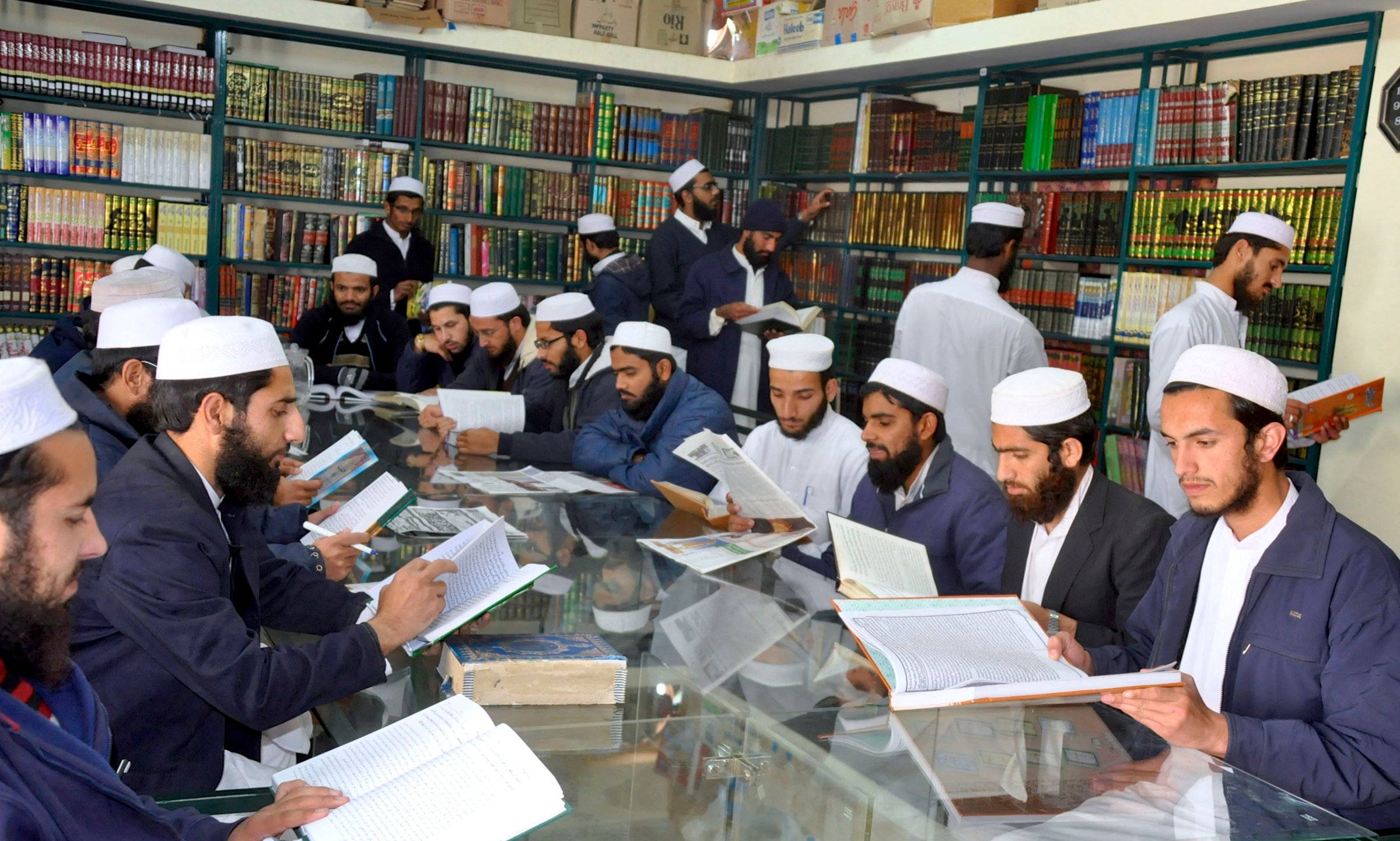
Madrassas are the Islamic institutions that give the teachings of Islamic subjects such as;
- Tafseer (Interpretation of Holy Quran)
- Hadith ( Quotes of Holy Prophet P.B.U.H.)
- Fiqah ( Laws of Islam)
- Arabic Language
Many non-Islamic subjects are also taught in some madrassas to give the students primary and basic education to stand in society with dignity. The subjects like logic, mathematics, and philosophy are also taught so that the students become able to understand and comprehend the religious ones.
As Pakistan is an Islamic country so madrassa education is given much importance in the life of individuals. There are about 15,000 to 40,000 madrassas in Pakistan. There are some areas in Pakistan where madrassas are in greater number than the public schools.
Problem and Issues in the education system and its Solutions
In Pakistan, though the education system is very good and it yields very brilliant, intelligent, and hardworking students, it also faces some problems and issues that are as follows;
- Outdated Curriculum—–An up-to-date curriculum is the main tool that helps in achieving the main goals of education of a nation. But curriculum in Pakistan is outdated and could not keep pace with modern society.
Regular revisions of the curriculum should be carried out and new editions should be published regularly.
- Faulty examination system—– Examination system in Pakistan is faulty and outdated as it is unable to evaluate the comprehensive performance of students.
Both qualitative and quantitative techniques should be introduced into the examination system of Pakistan.
- Lack of uniformity——–There is no uniformity in the education system of Pakistan and at a time multiple education systems are in function. These differences generate many issues such as economic disparity, polarization, etc.
A similar education system should be introduced in Pakistan and there should be equality of opportunity for the students.
- Lack of trained faculty—-In Pakistan, faculty is not well-trained and there is a lack of professional teachers.
There should be proper training for teachers and only professional teachers should be hired so that they illuminate the future of students through their blazing lights of knowledge.
- Low budget——-It is one of the top problems of the education system of Pakistan. The education system is given very less priority by the governments. Only 2 to 2.5% of GDP is allocated for the education sector due to which the state cannot meet the educational needs.
At least, Government should double up this allocation, so that the education sector could be progressed and could meet all its issues and needs.
- Poor supervision——It is a very serious problem in the examination system and due to this, students do cheating and could do well in their future.
There should be strict supervision and no favor or bribe should be given to the supervisors for cheating or any other illegal act.
- Dropouts———–It is the main hindrance in achieving educational prospects at the primary level. The main contributing factors to dropout are; poor parent-school relationships, child labor, lack of trained faculty, etc.
By working on the contributing factors of dropout, we can enhance the quality of our education.
- Corruption in the education sector—–Corruption is a very serious issue in the education sector that is eroding the system of education. There is a very weak system for checking and balancing.
There should be a strict accountability process in the education system to get rid of this cursed activity.
- Poor infrastructure——–In Pakistan, more than 80% of the students are enrolled while the institutions do have not much capacity to provide a good educational environment for such a high percentage of students. Due to the crowded environment, the basic needs and advanced facilities are not provided to the students and as a result, they don’t groom well.
There should be a limit on the enrollment of students according to the available facilities in the institution and also the government should provide advanced facilities to the students.
Wrap up
Education systems provide knowledge and skills to the students that play a significant role in reducing poverty, achieving gender equality, and fostering economic growth and social development. In order to strengthen the education system of Pakistan. its issues and problems should be seriously undertaken and considered and their solution should be carried outA strong and productive education system would produce the gems of our nation that would then guarantee the development and progress of the country.